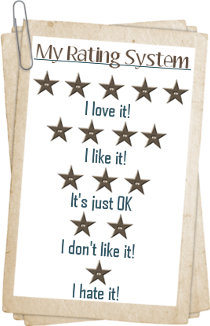
ABOUT THE AUTHOR
As a field radio operator, Lloyd Lofthouse was a walking target in Vietnam in 1966. He has skied in blizzards at forty below zero and climbed mountains in hip deep snow. Lloyd earned a BA in journalism after fighting in Vietnam as a U.S. Marine. Later, while working days as an English teacher at a high school in California, he earned an MFA in writing. He enjoyed a job as a maitre d’ in a multimillion-dollar nightclub and tried his hand successfully at counting cards in Las Vegas for a few years. He now lives near San Francisco with his wife, with a second home in Shanghai, China. Lloyd says that snapshots of his life appear like multicolored ribbons flowing through many of his poems.This link takes you to Lloyd's 'Vietnam Experience' page filled with photos. He took many of them. Since Lloyd still has to edit the photos so they load faster, this page may load slow for older computers.This link will take you to a media piece from a Southern California newspaper that Lloyd copied and posted on his Website that will give you an idea about his teaching years.If you are interesting in learning more about Lloyd's teaching experience, you are welcome to read about it at AuthorsDen. 'Word Dancer' is a memoir of the 1994-1995 school year. He kept a daily journal that year. He is using that journal to write 'Word Dancer'. Everyday, when he arrived home, Lloyd wrote an entry in that journal. It sat on a shelf in his garage for fourteen years gathering dust. Spiders moved into the binder and built a nest. After all those years, Lloyd forgot he'd written it. When he was cleaning the garage, he found it again. Lloyd started reading, remembering and writing. Everything he writes in 'Word Dancer' happened. He's using a primary source as his guide. Memory may be faulty, but a daily journal written the day an event took place is as accurate as it can get from the author's point-of-view.Accomplishments: Lloyd's short story "A Night at the Well of Purity" was named a finalist for the 2007 Chicago Literary Awards.As a teacher, Lloyd found satisfaction in the number of students that published nationally and internationally while attending his English and journalism classes.You can visit his website at http://www.mysplendidconcubine.com/.
As a field radio operator, Lloyd Lofthouse was a walking target in Vietnam in 1966. He has skied in blizzards at forty below zero and climbed mountains in hip deep snow. Lloyd earned a BA in journalism after fighting in Vietnam as a U.S. Marine. Later, while working days as an English teacher at a high school in California, he earned an MFA in writing. He enjoyed a job as a maitre d’ in a multimillion-dollar nightclub and tried his hand successfully at counting cards in Las Vegas for a few years. He now lives near San Francisco with his wife, with a second home in Shanghai, China. Lloyd says that snapshots of his life appear like multicolored ribbons flowing through many of his poems.This link takes you to Lloyd's 'Vietnam Experience' page filled with photos. He took many of them. Since Lloyd still has to edit the photos so they load faster, this page may load slow for older computers.This link will take you to a media piece from a Southern California newspaper that Lloyd copied and posted on his Website that will give you an idea about his teaching years.If you are interesting in learning more about Lloyd's teaching experience, you are welcome to read about it at AuthorsDen. 'Word Dancer' is a memoir of the 1994-1995 school year. He kept a daily journal that year. He is using that journal to write 'Word Dancer'. Everyday, when he arrived home, Lloyd wrote an entry in that journal. It sat on a shelf in his garage for fourteen years gathering dust. Spiders moved into the binder and built a nest. After all those years, Lloyd forgot he'd written it. When he was cleaning the garage, he found it again. Lloyd started reading, remembering and writing. Everything he writes in 'Word Dancer' happened. He's using a primary source as his guide. Memory may be faulty, but a daily journal written the day an event took place is as accurate as it can get from the author's point-of-view.Accomplishments: Lloyd's short story "A Night at the Well of Purity" was named a finalist for the 2007 Chicago Literary Awards.As a teacher, Lloyd found satisfaction in the number of students that published nationally and internationally while attending his English and journalism classes.You can visit his website at http://www.mysplendidconcubine.com/.
ABOUT THE BOOK
Driven by a passion for his adopted country, Robert Hart became the “godfather of China’s modernism,” inspector general of China’s Customs Service, and the builder of China’s railroads, postal and telegraph systems, and schools, but his first real love is Ayaou, a young concubine.
GUEST POST

The Research Behind the Writing of MY SPLENDID CONCUBINE
“Bad Company led me away from the path of duty; my punishment was not merely spiritual loss but bodily suffering... I continue to sin (from Robert Hart’s journal entry for Sunday, 27 August 1854).”
I started my research by reading that passage in 1999. For the next nine years I researched, wrote, revised and edited until My Splendid Concubine was ready to be published.
Writing historical fiction requires doing research to gain knowledge on the subject and culture the novel is about. For My Splendid Concubine, that meant 19th century China. A novel like My Splendid Concubine has many plot elements that make up the story. They are like colored strings and ribbons. One of those strings was about concubines since Ayaou, a major character in the novel, was Robert Hart’s concubine.
It wasn’t long after Robert Hart arrived in China that he was introduced to the Chinese custom of taking more than one wife or concubine. Robert Hart’s journal entry for Thursday, 31 August 1854 said, “I take great interest in these girls.... Cheepa told us this evening that his father and mother got his first wife for him; He had not seen her previously. His second wife (his own choice) he says is his favorite. He told us that from 200 to 1000 dollars are given for a wife by respected Chinese. They marry between the ages of 16 and 30.”
After reading Entering China’s Service, Robert Hart’s Journals, 1854—1863 and the two volumes for The I. G. in Peking, I edited and read the rough draft for my wife’s book, Empress Orchid, which takes place during the same time. Since Anchee was born in China, I picked her brain for answers to questions and where to find them. While reading Entering China’s Service, I discovered that Hart met his concubine Ayaou in Ningpo. I also read that he destroyed some of his journals written after July 1855. “We can infer that he was expunging the record of a new way of life that was not for public knowledge.” (page 152, Entering China’s Service)
It wasn’t until after reading this in Dragon Lady by Sterling Seagrave that I knew what I wanted to write. “By early May he (Hart) had a sleep-in dictionary, his concubine, Ayaou. He had just turned twenty; Ayaou was barely past puberty but was wise beyond her years.... From his first days in China, Hart had taken offense at the way Westerners causally abused the Chinese.” (page 150, Dragon Lady by Sterling Seagrave). However, that wasn’t enough information to start writing my novel. I had to learn more.
Anchee pointed me toward Lin Yutang’s My Country and My People. I used Google to hunt down a used copy. Pearl S. Buck wrote some advice that I took seriously in her Introduction for Yutang’s book: “A book about China, worthy to be about China, can be none of these things. It must be frank and unashamed, because the real Chinese have always been a proud people, proud enough to be frank and unashamed of themselves and their ways.” (page xv, My Country and My People, Lin Yutang, 1938)
In addition, I read two books, Lisa See’s Snow Flower and the Secret Fan and Peony in Love. I then contacted Lisa See asking for advice. She replied that I should read Susan Mann and Patricia Buckley Ebrey’s work on China.
I didn’t leave out movies either. I bought and watched Zhang Yimou’s Raise The Red Lantern and Nancy Kelly’s Thousand Pieces of Gold.
Every book and movie helped me gain an understanding of what life must have been like in China for a concubine. However, at the same time, I had to take into account that Robert Hart was from Ireland. He wouldn’t treat his concubines the same way a Chinese man would.
As you can see, writing historical fiction is not an easy road to travel. The topic about concubines was only one strand of the plot—there were more. That’s why it took nine years to write My Splendid Concubine.





















1 comment:
I love the analogy of plots in a book being like colored strings and ribbons. What a great image!
This sounds like an interesting book. I'm always fascinated by the research that goes into a historical fiction book. Thank you for the guest post!
Post a Comment